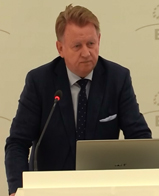Public Participation
Public Participation in international law

The right to participate in environmental decision-making: Arrangements are to be made by public authorities to enable the public affected and environmental non-governmental organisations to comment on, for example, proposals for projects affecting the environment, or plans and programmes relating to the environment, these comments to be taken into due account in decision-making, and information to be provided on the final decisions and the reasons for it.
There is some support for public participation in agreements of global scope. Of those agreements, the 1994 UN Convention to Combat Desertification (UNCCD), 2002 Stockholm Convention on Persistent Organic Pollutants and the 2000 Cartagena Protocol on Biosafety to the Convention of Biological Diversity are most supportive for public participation, whereas the United Nations Framework Convention on climate change (UNFCCC) and the Convention on Biological Diversity (CBD) only provide for public participation in more general terms. International Atomic Energy Agency (IAEA) conventions concerning nuclear activities, while requiring that certain information is made publicly available, are silent on public participation (even the references to environmental assessment don’t mention public participation. International Law Commission’s (ILC) Articles also set out a weaker duty to provide for participation than to provide access to adequate information.

The Aarhus Convention is the most advanced environmental agreement also in providing for public participation, by setting relatively detailed minimum standards for different participatory procedures. Whereas the mentioned global instruments and the regional environmental agreements for Africa and South-east Asia refer to public participation only in general terms, the Aarhus Convention prescribes e.g. that the public must be informed at an early stage in decision-making, and the kind of information to be made available as a minimum in such procedures.
It is noteworthy that within the different human regimes, without explicitly referring to public participation, provisions providing for different recognised rights have been construed as also including a right to be duly consulted or able to take part in decision-making procedures in environmental matters. The right to be able to participate in decision-making is considered to be a part of the right to respect family and private life by the European Court of Human Rights, an element of the right to property by the Inter-American Commission of Human Rights, and is also included in the right to a satisfactory environment by the African Commission on Human and Peoples’ Rights.
Despite the references in the global agreements, there is currently less support for the right to participation in environmental decision-making than for access to information. The different regional agreements and the jurisprudence of some human rights bodies nevertheless reveal some support for such participatory and procedural rights in most parts of the world. The support for such rights in international law is the weakest in the Pacific and Asia.

For the presentation on "Public participation in decision making: Scope of application" see:

